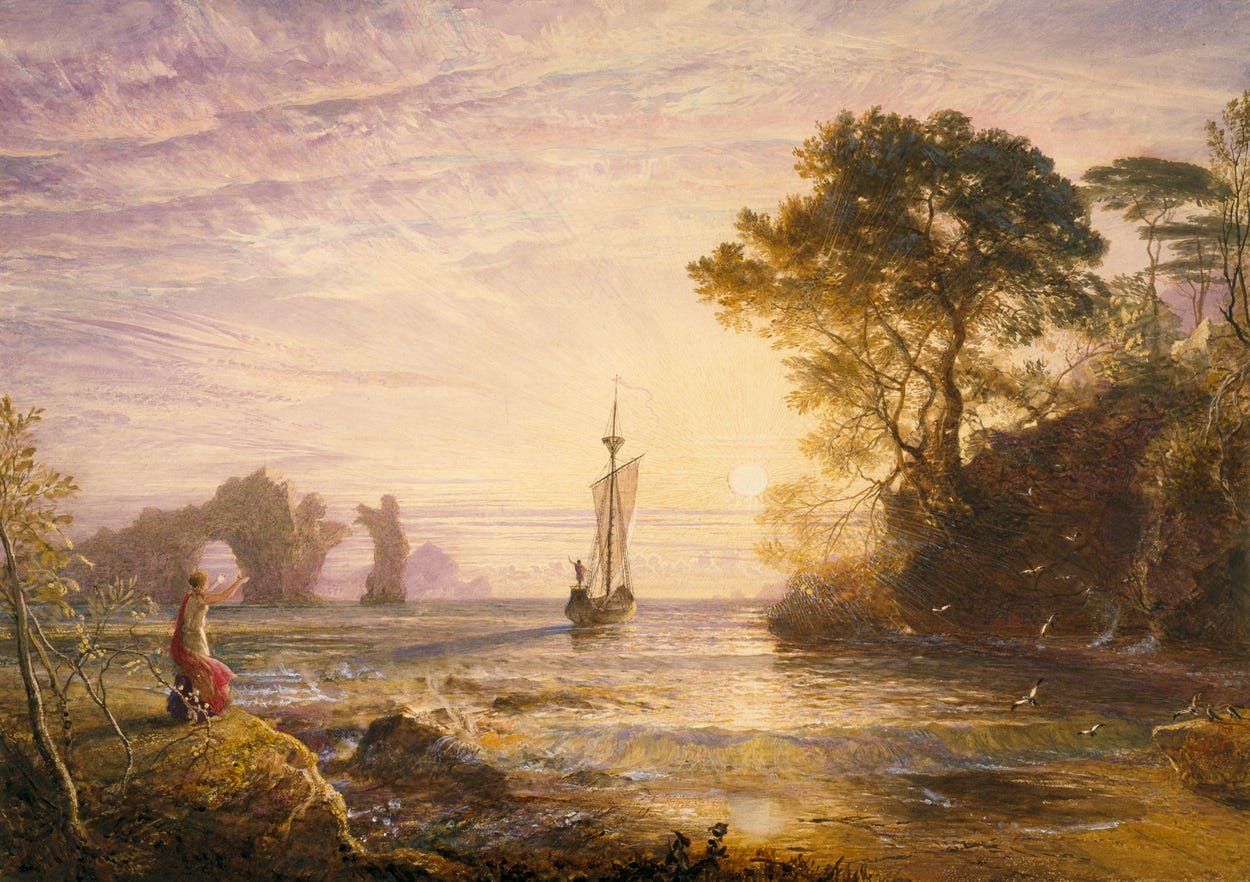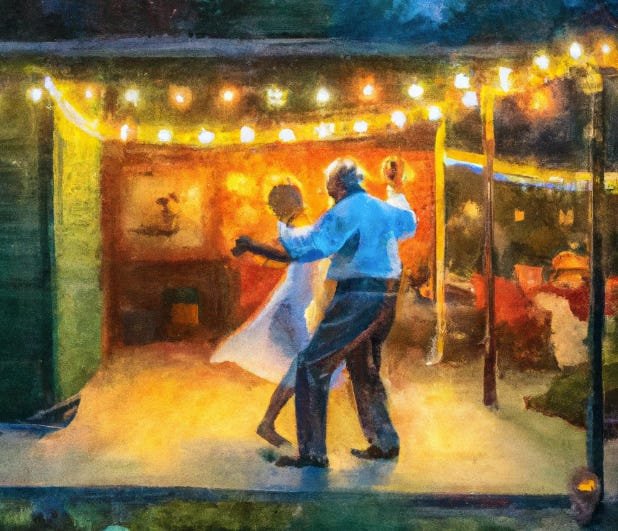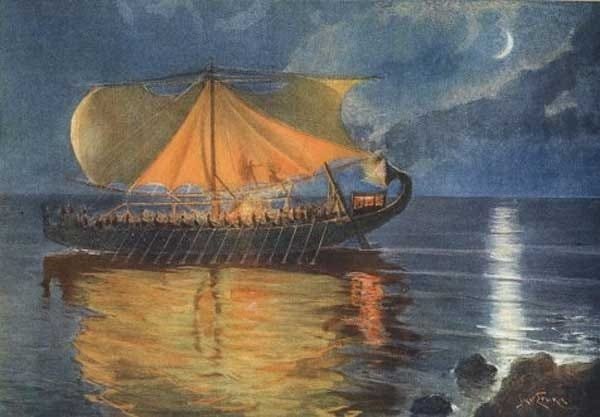I've been thinking about the unfinished adventure of growing old.
Calypso’s Island, Departure of Ulysses, or Farewell to Calypso by Samuel Palmer, 1848-49, via The Whitworth, University of Manchester
In 1991, I joined a men’s group that has met every other week for thirty-two years. There were sixteen of us to begin with, ranging in age from thirty-three to sixty (I was then forty-nine). Death has robbed us of six beloved friends, one just last November, and two comrades moved away, so we’re now seven. From the beginning our agenda was to talk candidly about our experiences with women, work, and God. To date we’ve not run out of new and important issues to share.
During the past decade, we’ve talked often about slowing down physically and, in some cases, mentally, and how much we hate for ourselves what our late member labelled his "diminishment." How much energy do I bring, how much fresh insight to my experiences with women, work, and God? It's alluring at times to think of giving in, slowing down, coasting toward the death I know is coming for each of us. But I cherish one of the promises we've made to one another, that we’ll fight this resignation in ourselves and resist letting anyone in the group give in and give up.
As I now move through my eighties, I find myself being more intentional in my efforts to continue leaning forward. I search for goals to keep me fresh and hopeful. As one consistent mental practice, I nurture my desire to dance with our granddaughter at her wedding. She’s now ten years old, and when I recently shared this desire with our son, her father, he teased me that she’ll probably not be ready for marriage at fifteen, Dad. Thanks for the buzz-kill, Brendan! Still, the prospect of sharing such joy with her is what gets me to the gym twice a week.
When that's not enough - when the road seems too steep and I can barely muster the energy that used to ignite my efforts - I return to Alfred Lord Tennyson’s 1833 poem, Ulysses. I first came across it while reading our younger son’s high-school poetry text for his English Lit class. I copied it out and keep it on my computer desktop, and I keep the poetry textbook next to the chair in our den and read the poem frequently. It is scripture to me, sacred encouragement to Push off when I wonder if I’ll be able to pull my oars through the next wave. I share it with you, whatever your age, because it inspired me in my forties in the same way it inspires me today.
In the poem’s first stanza, Ulysses muses on the ten years he spent fighting with his Greek comrades in their war against the Trojans (recorded in The Iliad), and the ten years he spent facing endless challenges while sailing home to Ithaca where his wife, Penelope, and his son, Telemachus, waited faithfully for his return (recorded in The Odyssey).
The Siren Vase, 480-70 BC, via the British Museum, London. Ulysses is bound to the mast, to help him resist the call of the winged Sirens overhead.
In the second stanza, he acknowledges that three years of presiding as king over Ithaca holds no candle to his heroics as a soldier and sailing the turbulent seas. Longing for a return to adventure, Ulysses decides to toss the crown to his more patient son and hop aboard a ship with his former comrades. (No mention of how Penelope feels about any of this.)
Here is the poem’s rousing final stanza:
…There lies the port; the vessel puffs her sail:
There gloom the dark, broad seas. My mariners,
Souls that have toil'd, and wrought, and thought with me—
That ever with a frolic welcome took
The thunder and the sunshine, and opposed
Free hearts, free foreheads—you and I are old;
Old age hath yet his honour and his toil;
Death closes all: but something ere the end,
Some work of noble note, may yet be done,
Not unbecoming men that strove with Gods.
The lights begin to twinkle from the rocks:
The long day wanes: the slow moon climbs: the deep
Moans round with many voices. Come, my friends,
'T is not too late to seek a newer world.
Push off, and sitting well in order smite
The sounding furrows; for my purpose holds
To sail beyond the sunset, and the baths
Of all the western stars, until I die.
It may be that the gulfs will wash us down:
It may be we shall touch the Happy Isles,
And see the great Achilles, whom we knew.
Tho' much is taken, much abides; and tho'
We are not now that strength which in old days
Moved earth and heaven, that which we are, we are;
One equal temper of heroic hearts,
Made weak by time and fate, but strong in will
To strive, to seek, to find, and not to yield.
Wrath of the Sea God, by British artist Herbert James Draper, c. 1900.






